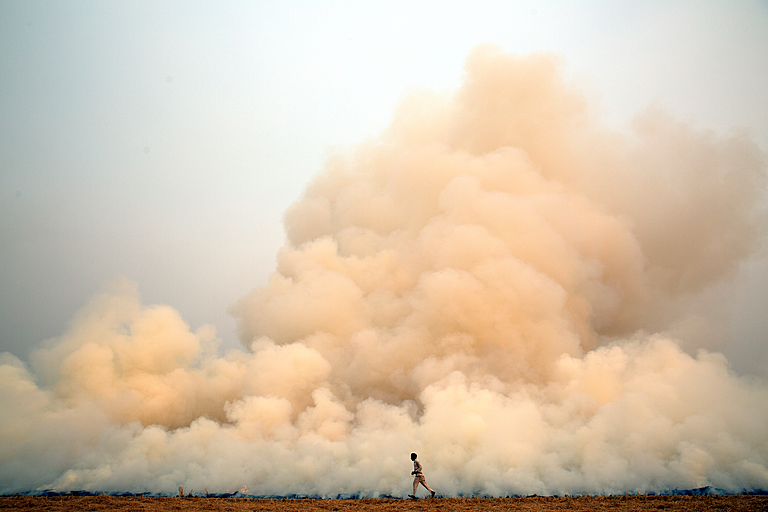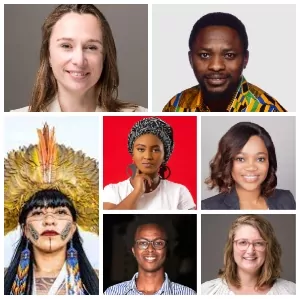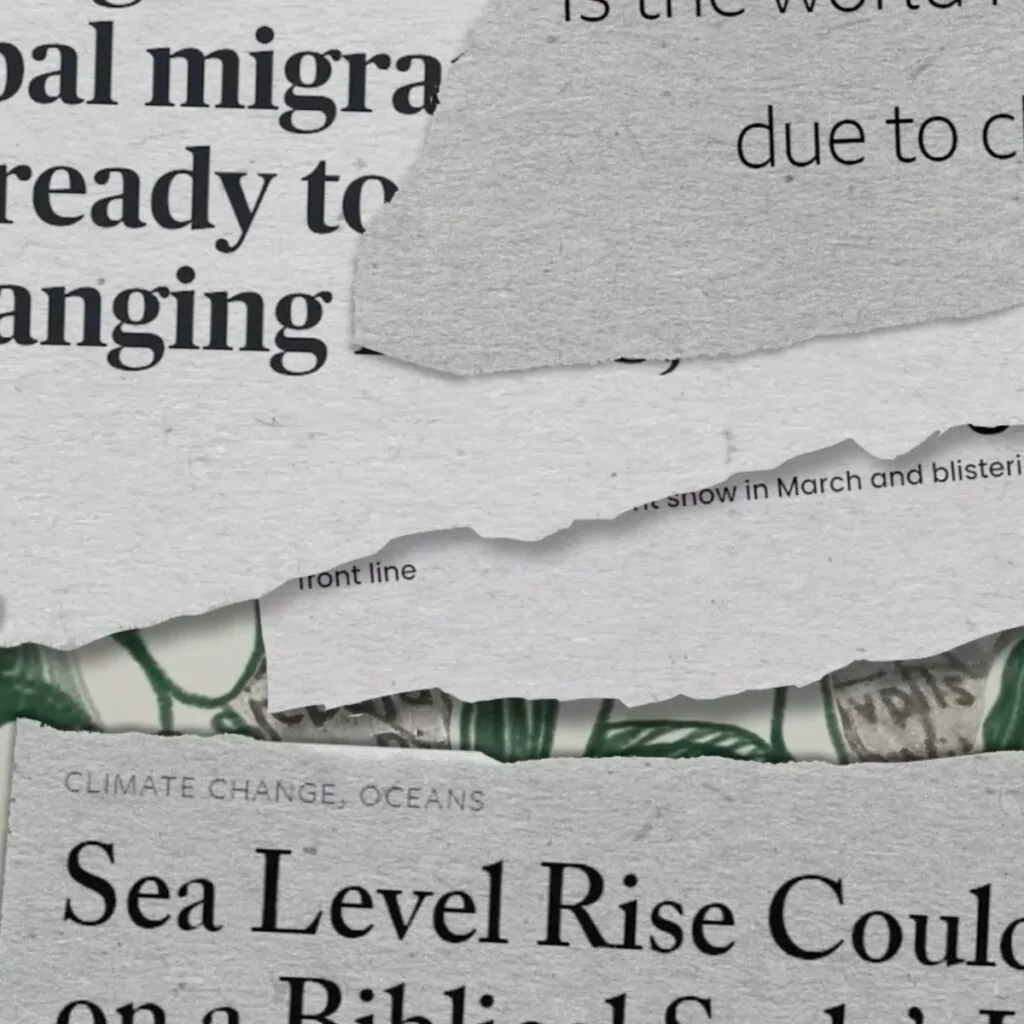What if we invested less in fossil fuels and more in climate justice?
Dear Reader,
June’s Paris climate finance summit ended with a “consensus” that the international financial system was insufficient in an era of global warming. Despite some agreements , the meeting stopped short of addressing fundamental issues of finance available to developing nations, which block developing nations from making investments in climate and development and climate measures.
In this edition of Livism, we hear the perspectives of Chinma and Precious on this issue. You can also watch a short animation about Precious’s story that will help an understanding of how investments in fossil fuels are damaging the environment and the lives of people in developing countries.
As usual, we also have some relevant resources to share with you – we hope you enjoy them!
Happy reading!
From,
The Livism Team
How the climate crisis is giving rise to a debt crisis in the Global South
By Chinma George


© Ishan Tankha / Climate Visuals Countdown
Chinma George is an environmental and climate finance expert. She founded ClimFinance Consults, a think tank that conducts research on climate change and links projects to climate finance in Africa. She has been following climate finance negotiations since Paris 2015, and has been part of Nigeria’s delegation in Morocco, Glasgow and Egypt.
There is no doubt now that a climate catastrophe is imminent if drastic action is not taken. Unfortunately for us in the Global South, we are still dealing with many other problems – from a lack of energy access, to food insecurity and development issues. These challenges mean we simply do not have the financial capacity to deal with climate change. Every year, the frequency of disasters such as floods, heatwaves and hurricanes increases across the world.
Last year, serious floods affected almost all states in Nigeria, with economic losses totalling around $6.68 billion. Meanwhile, Pakistan’s devastating floods displaced 7 million people and caused $30 billion in economic losses, according to the World Bank.
Climate-related events are exacerbating the vicious cycle of debt in developing countries, because more has to be borrowed during times of crisis. Public funds meant for development are now being used to cope with climate change and to service debts. This also means that countries cannot afford to invest in the future – for example, by building renewable energy infrastructure – because they don’t have any money and the cost of borrowing more is too high.
As of 2021, debt owed by developing countries reached $11.5 trillion. In light of all these things there have been various calls to reform the global financial system as well as to restructure debts in developing nations.
These calls include the Bridgetown Initiative, led by the Barbados prime minister Mia Mottley, which proposed giving debt relief to countries in the midst of extreme weather events. Some countries have also advocated for debt for climate and nature swaps, where debt is cancelled in return for guarantees on the preservation of nature. During the Summit for a New Global Financial Pact held in Paris this June, the World Bank announced it would pause debt repayments for countries struggling with climate disasters. But the agreement fell short of the comprehensive debt relief that many developing countries are desperate for.
From a climate justice perspective, it is developed countries that should pay a climate debt to developing countries, as they have contributed the vast majority of historical greenhouse gas emissions. This includes, at a minimum, the annual $100 billion in climate finance pledged way back in 2009. It should also include the total cancellation of debts of the Global South – something for which the debt for climate movement advocates.
The Global North owes developing countries for colonialization, over 500 years of exploitation, as well as using Africans through the slave trade as labour to develop and industrialize. Climate debt is not only about climate change but about all the injustices from whence climate change originated.
Spotlight on: Precious Kalombwana
As a youth climate justice activist in Zambia, Precious is passionate about achieving debt- and climate justice. She has been a prominent youth leader with Extinction Rebellion (XR), Zambia Climate Save (CL), Debt for Climate Zambia (D4C), as well as Fridays for Future (FFF) Zambia. Her actions are always directed at her local community, as she firmly understands the notion that individual action is inspired by thinking globally but acting locally. As a young person in Zambia, she works together with other young people to amplify their voices and pave the way for a thriving greener future free from unjust debt.


How is climate change affecting life for people in Zambia?
Climate change affects everyone and Global North countries are also already facing problems due to climate change. Africa is less of a contributor to it though, and is suffering the most. In Zambia, climate change has affected our livelihoods and caused many losses and damage. For example, the recent floods we experienced saw a number of houses damaged, crops destroyed, people becoming homeless…
Due to the same floods, people could not access health care services, education, and others lost their jobs because they were unable to go to their workplace. The impact that we are facing in Zambia is making our debt crisis worse, and the country’s lack of resources makes it impossible to deal with several crises at the same time.
What do you think is most important for people to understand about loss and damage?
It’s important that people learn about climate change and loss and damage. This will help us to face climate change impacts adequately, so we can push for adaptation and mitigation. Being affected by loss and damage, I can tell you that we need funds. Since the Paris Agreement in 2015 though, we have not seen anything about this – only last year at COP27 did they announce the loss and damage fund, but no action has been taken yet. We need the loss and damage funds to move beyond talk at conferences – we need them to be actually implemented and acted on.
If climate action isn’t taken right now, what will the future look like for Zambians?
There is no climate justice without action. If we don’t act now, deforestation will become a habit, we might see wildlife extinction. The economy will be greatly affected, as Zambia is one of the countries that is in debt. We are seeing some of these effects now, with people unable to eat three times a day – some are eating once a day because of the debt and prices being too high.
To fight this, we need more Global South countries to be represented in international conferences – world leaders know what’s really happening to us already, but there will be no just transition in Zambia if no action is taken now: our house is on fire and people are starving.
Learn more about Precious’s story in this video.


In case you missed it
Feeling the real-time effects of climate change is uncomfortable, but Josh Appignanesi’s film reminds us that working together is the empowering antidote.
Founded in 2019 and now in its 4th edition, the #CreateCOP prize from creative agency Art Partner is an open call to all photographers and artists aged 14 to 30 years.
What would it look like to bring the climate story down to earth, and moreover to centre our stories on those who are most vulnerable? Nina Lakhani shares her ideas in this Q&A.
At this year’s Glastonbury Festival, art and activism joined forces for the future with the release of a new Greenpeace charity single.
A new study suggests that provoking anxiety when talking about climate change might trigger backlash.
Research by the Rights and Resources Initiatives shows that granting land rights to Indigenous and local communities is one of the best and most cost-effective ways of preventing deforestation.
On 15th and 17th September climate justice movements will call for major global mobilisation to fight to end fossil fuels.
In June, Ireland’s Minister for Tourism, Culture, Arts, Gaeltacht, Sport and Media, Catherine Martin, announced new funding and a plan to support cultural organisations to reduce carbon emissions – it’s a world first in bringing together national climate and cultural policy.
Rising temperatures are linked to a significant increase in domestic violence against women, according to a new study.
Recommendations
What we’re listening to
Collective but diversified bottom-up power can ensure a new energy model both is run by and services those who the current model exploits and discriminates against. Understanding what maintains us in unsustainable energy cultures, and developing a paradigm for constructing truly equitable energy systems, requires an ecofeminist view on energy.
What we’re attending
When? Thu, 20 Jul 2023 13:00 – 16:00 CEST
Where? Online
Art, lived experience of disability, climate change and their intersections will be explored by leading Irish and international arts professionals in an afternoon of free online panel discussions.
When? Tue, 25 Jul 2023 19:30 – 20:30 CEST
Where? Online
Climate change threatens the cultural and natural heritage of North Uist and will undoubtedly affect its residents’ wellbeing. The Western Isles form the heart of the vernacular Gaelic community, which is so critical to Scottish identity across the diaspora, so these imminent climate threats to North Uist will have national and international repercussions.
What we’re reading
- 1,001 Voices on Climate Change: Everyday Stories of Flood, Fire, Drought, and Displacement from Around the World by Devi Lockwood
In 1,001 Voices on Climate Change, Lockwood travels the world, often by bicycle, collecting first-person accounts of climate change. She frequently carried with her a simple cardboard sign reading, “Tell me a story about climate change.”







